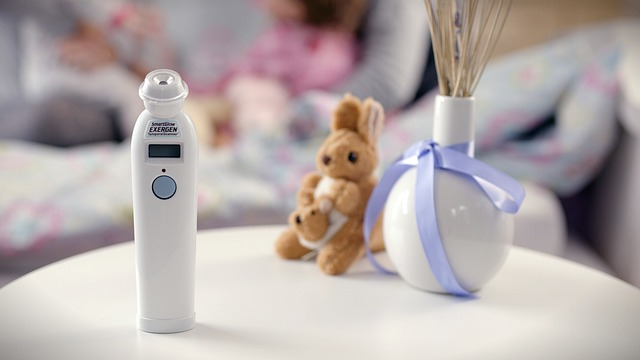As a detective tracks elusive clues, you've explored factors disrupting your sleep. Surprisingly, one overlooked aspect could be as simple as your cold feet. Yes, the temperature of your feet can profoundly impact your sleep patterns, and the solution might be as straightforward as wearing warm socks to bed.
Key Takeaways
-
Body temperature naturally drops in the evening, signaling the brain that it's time to sleep.
-
Wearing socks to bed warms the feet and dilates blood vessels, signaling the brain it's time for sleep.
-
Choosing breathable materials for sleep socks is important to maintain a consistent foot temperature.
-
Tight-fitting socks should be avoided, as they constrict circulation and counteract their intended purpose.
Understanding Body Temperature Fluctuations
When the evening rolls in, your body temperature naturally drops, signaling to your brain that it’s time to sleep. This reduction in core body temperature is a critical part of your body's sleep-wake cycle. However, cold feet can disrupt this cycle, making it challenging to fall asleep.
Warming your feet by wearing socks can counteract this issue. This practice helps dilate blood vessels in your feet, improving blood flow and reducing sleep onset latency. Essentially, wearing socks to bed can be a simple yet effective way to promote rapid sleep onset and enhance overall sleep quality.

The Science Behind Sleeping With Socks
Diving into the science of sleep, we find intriguing connections between our body's thermoregulation and sleep quality. A key factor in this is our body temperature, which naturally fluctuates throughout the day and night. As we prepare to sleep, our core body temperature begins to drop, signaling to our body that it's time to rest. However, this process can be disrupted if we experience cold feet, a common occurrence that can impede our ability to fall asleep.
Warming your feet can therefore be a critical step in this nightly ritual. By wearing socks to bed, we can help dilate blood vessels and improve blood flow, leading to a quicker decrease in core temperature. This aids in reducing sleep onset latency, the time it takes to fall asleep. Sleeping with socks thus becomes more than a comfort preference; it's a scientifically-backed method to enhance sleep quality.
Potential Health Benefits of Warm Feet
Warming your feet before bed cues your brain for sleep and brings other health benefits. This simple act supports your body's natural temperature regulation. Your cold feet transform into warm feet, and this subtle change can help you fall asleep faster.
The potential health benefits of warm feet extend beyond just altered sleep patterns. Here are three significant perks:
1. Thermal Conductivity: Wearing warm socks at night is a thermal conductor, ensuring a consistent foot temperature. This can particularly benefit those with chronic cold feet or conditions like Raynaud's disease.
2. Skin Health: Warm socks can protect your feet from cracking and drying out, maintaining your overall foot health.
3. Pleasure Boost: Interestingly, warm feet can increase the chance of achieving an orgasm, adding a surprising twist to the benefits of warm feet.
Choosing the Right Sleep Socks
When it comes to wearing socks to bed, the type of sock matters significantly. Breathable materials like cotton, bamboo, or merino wool are ideal. These materials help in local skin warming without causing overheating. Tight-fitting socks, however, should be avoided as they can restrict blood circulation, which is counterproductive to the goal of warming your feet.
People suffering from conditions like Raynaud's disease or those who are constantly cold may find particular benefit from wearing compression socks at night. These socks can aid in maintaining warm feet, improving overall sleep hygiene.
The Comprehensive Impact of Warm Feet
The practice of keeping your feet warm at night extends beyond just helping you fall asleep faster. It plays a significant role in your overall sleep cycle, potentially reducing disturbances like hot flashes and aiding in achieving deeper stages of sleep, like slow wave sleep and rapid eye movement sleep.
Furthermore, maintaining a consistent skin temperature by wearing bed socks can enhance blood flow and body heat regulation, essential factors in achieving sound sleep. This is particularly important in maintaining a cool bedroom environment, which research suggests is optimal for sleep.
For those with sleep disorders, this can be a simple yet effective intervention. Sleep medicine often focuses on environmental and behavioral changes to improve sleep, and maintaining an optimal temperature through feet warming is a prime example of this.
Innovative Alternatives to Socks
While wearing socks to bed is beneficial for many, it's not the only way to warm your feet. A warm foot bath before bed or using a hot water bottle can also help in warming feet, promoting better sleep. These methods can be especially helpful for those who find wearing socks uncomfortable or have specific medical conditions like poor circulation.
Addressing Common Concerns and Misconceptions
When it comes to getting a good night's sleep, many overlook the simple yet effective role of wearing socks to bed. Contrary to some beliefs, wearing socks doesn't just keep your feet warm; it can significantly improve your overall sleep quality. Let's address some common concerns and misconceptions about this practice.
-
Wearing socks to bed can help to warm your feet, effectively signaling your brain that it's time to sleep. This is crucial for initiating the sleep wake cycle and reducing sleep onset latency.
-
Keeping your feet warm at night can also help regulate your body's temperature. When your skin temperature increases slightly, it aids in lowering your core body temperature, essential for falling into deep, restful sleep.
-
The type of socks you choose is important. Cotton socks or wool socks are excellent choices as they allow your skin to breathe. On the other hand, tight or synthetic materials may restrict blood flow or lead to overheating.
The Science Behind Wearing Socks for Better Sleep
Research suggests that wearing bed socks can significantly enhance your sleep quality. Keeping your feet warm improves blood circulation in your extremities, helping to distribute body heat more evenly across distal body sites. This warmth can be especially beneficial for those who typically have cold feet or suffer from poor circulation.
Sleeping with socks can also positively affect rapid eye movement and slow-wave sleep stages. Maintaining an optimal temperature throughout the night can lead to more sound sleep, allowing you to wake up feeling refreshed.
For those who often experience hot flashes or cold temperatures in their sleeping environment, wearing socks can create a more cool bedroom environment conducive to uninterrupted sleep.
Exploring Alternatives and Personal Preferences
While wearing socks to bed is a helpful tool for many in achieving better sleep, it's not the only solution. A warm foot bath before bed can also aid in warming feet and thus promote restful sleep. Similarly, using a hot water bottle can provide localized warmth without the need to wear socks.
It's essential to consider personal comfort and any specific sleep disorders or conditions like Raynaud's disease. In some cases, wearing compression socks may offer additional benefits, such as improving blood circulation and reducing sleep disturbances.
Conclusion: Embracing a Tailored Bedtime Routine for Optimal Sleep
In conclusion, embracing the habit of wearing warm socks to bed could be a transformative addition to your bedtime routine. Whether you choose to wear compression socks or simple cotton socks, the key is finding what works best for you and your sleep cycle.
Remember, achieving a good night's sleep is a crucial part of maintaining overall health, and sometimes, the solution can be as simple as ensuring your feet are warm and comfortable. So, why not give it a try tonight? You might just improve your sleep quality in ways you never expected.
